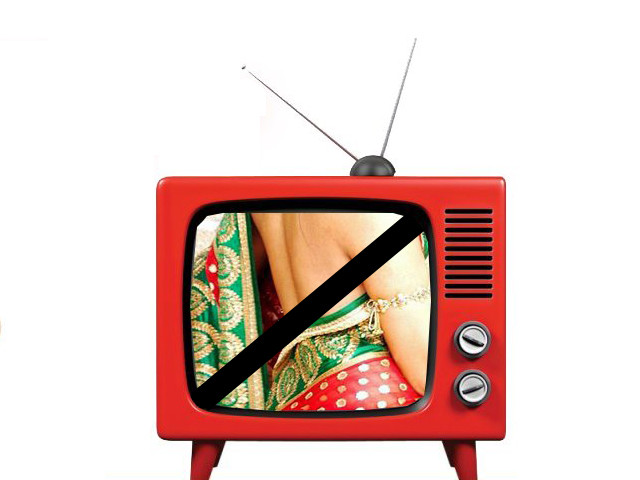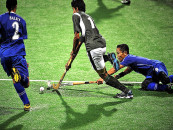Defining obscenity in Pakistan
This is not the first time that an intellectually impoverished Pakistan has confronted the problem of vulgarity on TV.

The Pemra chairman has insisted defensively that “no definition for obscenity or vulgarity exists in the Constitution, the Pakistan Penal Code or Pemra laws”. One Pemra official thinks a reference to parliament will have to be made, too, but at the present juncture, it appears that the Court might present the legislature with a pious fait accompli.
Defining vulgarity or fahashi is an intellectual exercise. In Pakistan, any clash of intellect with ideology is to be feared because the former will be predictably defeated by the latter. And any reference to ideology is bound to hand the field over to the currently powerful clergy by reason of their direct or indirect nexus with the Taliban, which has already taken steps to extirpate vulgarity from various parts of the country. This is not the first time that an intellectually impoverished Pakistan has confronted the problem of vulgarity on TV. In 2003, under the rule of a ‘permissive’ general, a debate took place on the subject that mainly focused on the ‘obscenity’ of Indian movies. The debate petered out mercifully amid confusion and anger because soon the national mind was exhausted getting itself around the word fahashi in a literalist environment that favours Islamic tradition at the cost of local culture.
The crux of the problem is the Muslim man’s incomplete comprehension of entertainment. He needs it as a social safety valve but prefers to enjoy himself only with a guilty conscience. His curtailed intellect — in deference to ideology he cannot modify — will not respond to the challenge of any redefinition of premodern edicts. Luckily, in 2003, Javed Ahmad Ghamidi was still around in Pakistan, unthreatened by the Punjabi Taliban and came to the rescue although his opinion, too, was guardedly offered.
Ghamidi opposed the ban on Indian entertainment and said that only positive state action was good for the people. Banning anything produced rebellion (sarkashi) and boredom (bezari), as was proved by the imposition of monarchy in Saudi Arabia, ‘mullahism’ in Afghanistan and theocracy in Iran. Banning Indian movies would simply be counterproductive. He favoured nurturing moral values till they became so strong that it would be safe for the people to see any kind of entertainment without being corrupted. Amazingly, Ghamidi, as a religious scholar, was able to say that it was political propaganda to say that Indian culture was bad for Pakistanis: “If we don’t have an answer to Pepsi and Coke, we will have to accept them. And if you stop people by force they will find illegal ways of enjoying something that you ban”.
‘Good taste’ differs from people to people but some will favour a ban on TV anchors who shout inanities in their talk shows and spread narrow-mindedness. But what is more likely is the victory of the ideology of the Taliban — and a reversion to General Ziaul Haq’s regime of censorship of the state-owned media and last-minute assault on the print media by section officers wielding moral scissors.
Judiciary is not debarred from intellectual exercise. There was a time when our chief justices made philosophical assessments and were praised for their tolerant worldview. Since any discussion of vulgarity is bound to tilt into edicts of narrow and literalist interpretation, Pakistani society might once again slip into furtive enjoyment of material that civilised society cannot allow. This has happened in the past; it might happen again. Under General Zia, people took to the cassette player (today we have CDs) and even the small cities were invaded by blue movies, which one can’t eliminate without transforming Pakistan into a police state.
Published in The Express Tribune, August 26th, 2012.



















COMMENTS
Comments are moderated and generally will be posted if they are on-topic and not abusive.
For more information, please see our Comments FAQ